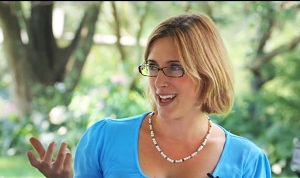 Sarah-Jayne Blakemore is a cognitive neuroscientist who studies the adolescent brain.
Sarah-Jayne Blakemore is a cognitive neuroscientist who studies the adolescent brain.
In a recent talk she gave at HeadCon 14 she said the following.
“If adolescence is a sensitive period for brain development, that is a double-sided coin because although it represents a period of opportunity in which the brain is particularly susceptible to acquiring new information in certain domains, it also might represent a period of vulnerability, in which the brain is particularly vulnerable to certain environmental inputs.”
There is not a great deal of research that has been done in the field of neuroscience on the adolescent brain, however that is changing. Like many areas of neuroscience, technology is allowing a greater opportunity to understand the way in which the human brain processes the input it receives. While it is, of course, different for every person, in some ways, we can understand a great deal from looking at what is similar. I am inspired by the work Professor Blakemore is doing. She is asking important questions about a critical time of life. Read more →
Dehumanization: A Key to Understanding Terrorism
/0 Comments/in Uncategorized /by Diane BenscoterAs I read about the young siblings I found myself empathizing with the psychological setting they were in. I understood what caused them to want, so desperately, to leave their parents, who they loved deeply, and to risk their lives for what they believed was the necessary path to serving God.
Read more →
The Adolescent Brain
/0 Comments/in Uncategorized /by Diane BenscoterIn a recent talk she gave at HeadCon 14 she said the following.
“If adolescence is a sensitive period for brain development, that is a double-sided coin because although it represents a period of opportunity in which the brain is particularly susceptible to acquiring new information in certain domains, it also might represent a period of vulnerability, in which the brain is particularly vulnerable to certain environmental inputs.”
There is not a great deal of research that has been done in the field of neuroscience on the adolescent brain, however that is changing. Like many areas of neuroscience, technology is allowing a greater opportunity to understand the way in which the human brain processes the input it receives. While it is, of course, different for every person, in some ways, we can understand a great deal from looking at what is similar. I am inspired by the work Professor Blakemore is doing. She is asking important questions about a critical time of life. Read more →
Wrap It Up and Call it Big Pharma
/0 Comments/in Uncategorized /by Diane BenscoterWe point to pharmaceutical companies, to the government, to big corporations. We feel so very righteous doing so. I hear it being done almost daily.
Read more →
The Importance of Story
/0 Comments/in Uncategorized /by mattadmin2I was hanging out on the edge today. By this I mean I was listening to conversations (watching videos) on my favorite website, www.edge.org. I was drawn to a video of Jonathan Gottschall talking about story. I have always loved stories, and am often deeply affected by them, so I listened with great interest to what Jonathan had to say.
Read more →
Seth Godin Defines Memes
/0 Comments/in Uncategorized /by mattadmin2Seth talks about the importance of something being remarkable, worth making a remark about. This was before Facebook and Twitter. He was not talking about retweets or likes. The concept was the same then as it is now, with or without social media. We, as human beings, have to choose where to focus our attention. A successful meme will spread if, and only if, it is worth remarking about. It has to be worth focusing our attention on.
Read more →
Robin Williams
/2 Comments/in Blog /by Diane BenscoterRead more →
Gaza – Extreme, Violent Hatred of the “Other”
/0 Comments/in Blog /by Diane BenscoterTalya Shilok Edry, who has more than one thousand Facebook followers, posted the following “status”: “What an orgasm to see the Israeli Defense Forces bomb buildings in Gaza with children and families at the same time. Boom boom.” Another quote “Sweet settlers, next time you kidnap an Arab boy, call me and let me torture him!! Why do you get to have all the fun?” These quotes have circulated widely on social media.
Read more →
TED Weekends
/0 Comments/in Blog /by Diane BenscoterSince then, I’ve watched TED grow to a multifaceted organization that is making the most of their “Ideas Worth Sharing” mission. They’ve recently collaborated with Huffington Post on a project called TED Weekend, which gives TED fans an opportunity to expand upon some of the most popular TED talks. It offers a place for those talks to be elaborated upon by the person giving the talk as well as by guest bloggers.
Read more →
What is So Scary About the Word Atheist?
/1 Comment/in Blog /by Diane BenscoterFear has to do with an emotion aroused by impending danger. The problem is, fear shows weakness. Anger is often a safer emotion to express than fear. Anger feels stronger, less vulnerable. Anger is what is often expressed toward atheists.
Read more →
I am NOT a Deprogrammer – Sorry…
/0 Comments/in Blog /by Diane BenscoterRobert Lifton’ work on totalism describes criteria for thought reform. When that criterion was presented to me during my “deprogramming” it was a devastating moment.
Read more →